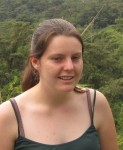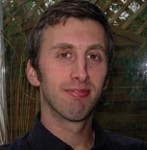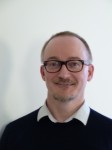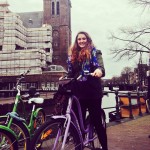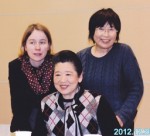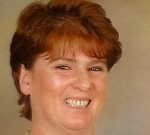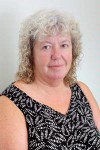We have reached Phase 2 of our seed funded impact project; on time and budget. (Have a look at my previous post for an overview of Phase 1.) This progress is very pleasing for all the obvious reasons but also because it has been fairly straightforward so far. In our mini-team, we identified appropriate sites and site managers to target with our first phase of requests for interviews. We also had a good round of emails working out which questions to ask and in what order. We got ethical approval from the university and set out the email that we would send to interviewees to explain the background to the project. And we have now invited our first phase of interviewees.
Tag Archives: engaging research
San Francisco calls: please vote for us
As postgraduate researchers at the Open University with an interest in communication and engagement, Frazer Bird and I are looking for your support. We’ve entered a video competition and we've been selected as finalists.
To win the prize - a trip for four people to the biggest geosciences conference in the world - our videos must receive the most likes on You Tube so we need all the help we can get.
If you’d like to know more about the type of research we do as paleoecologists, and to help one of our dreams come true, please follow the links in our post and like and share the videos. Read on for further details…
Engaging religious practitioners in London
Earlier this year members of the Religious Studies department – Dr John Maiden, Professor John Wolffe and Dr Gavin Moorhead – were awarded an ‘Engaging Research’ award by the Open University for their work on the ‘Building on History: Religion in London’ project. With this in mind, now seemed a good moment to reflect on the project.
The project was a knowledge exchange initiative, running between January 2012 and January 2013, which engaged religious publics in London with recent scholarship on the the city’s modern religious history.
Walton High students show star qualities
Students from Walton High, a school in Milton Keynes, have been finding out that the sky is definitely not the limit when it comes to research at The Open University (OU).
In late July, as part of their digital media production course, ten BTEC students visited the OU campus to find out more about its work on Europe’s comet-chasing spacecraft Rosetta – the world’s first mission to land on a comet.
Filming the field network system, a research collaboration
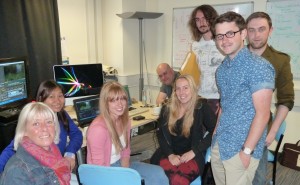
When I got an email from Richard Holliman about an Open University (OU) media skills training course, it took me all of 30 seconds to double-check with my PhD supervisor and sign up. I’d previously attended a one-day event with the Royal Society, and was keen for a more in-depth course. I had no idea what to expect, but was excited to hear that the aim of the course would be to build up the skills needed to design, produce and edit a short film.
From the 2nd to 6th June I worked with fellow OU PhD students Frazer Bird, Jamie Dorey, Hnin Myint, and Phillipa Smith, under the expert guidance of presenter Janet Sumner, cinematographer Gerard Giorgi-Coll and Assistant Producer Tom Ryan to create a short film about a collaborative research project between the OU and the Field Studies Council (FSC), an environmental education charity that provides opportunities for people of all ages to engage in fieldwork. You can watch the results of our efforts by selecting the video below.
The life of an OU intern – Engaging Research Final Week
Another week of media training, this time looking at space science!
Monday
I worked today with the new group of media students from Walton High. I got the chance to meet them last week at the briefing but in the space of a week had managed to forget everyone’s names; obviously not my strong point.
Monday is always the day that the students learn how to interview. Luckily I managed to get out of being the guinea pig and instead got to watch Manisha, the teacher, squirm.
Although very shy to start with the students slowly started to come out of their shells a little, especially when put in front of a camera.
...continue reading
Towards an oral history of Hiroshima
While in Japan to research a travel book, I spent a night in Hiroshima. Talking to the ‘guides’ who met me for dinner, it emerged both were children of survivors of the atomic bomb but their parents had never talked to them about the blast. I went with my guides to a neighbourhood meeting; hearing that I was interested in war survivors, a 94-year-old woman, who had been attending these meetings for years, stood up and said: ‘I too am a hibakusha’.
...continue reading
Evaluating the impact of engaged research on practitioners
The Floodplain Meadows Partnership is a research project based on key academic work carried out at the Open University by Professor David Gowing and others on the response of species-rich floodplain meadows to changes in management, particularly hydrological changes. The partnership recently received an Evidencing Engaged Research seed funding award to look at the impact that advice from the project has had on site managers and sites across the UK.
...continue reading
Imagining scientists – having fun, out on the street, tracking criminals and fighting zombies!
Can you imagine a scientist? Alternatively, can you imagine yourself working as a scientist? These are questions that Liz Whitelegg, Richard Holliman and myself, all members of the Invisible Witnesses team, have been asking school students.
...continue reading
Prison-based higher level distance learning and its role in life after prison
Higher level distance learning in prison gives prisoners a positive student identity, resilience and high hopes for a better, crime-free future. These qualities help them to tackle the immense challenges facing ex-prisoners. Maintaining their student identity and belonging to a learning community after release, also enables them to integrate into society more easily.


